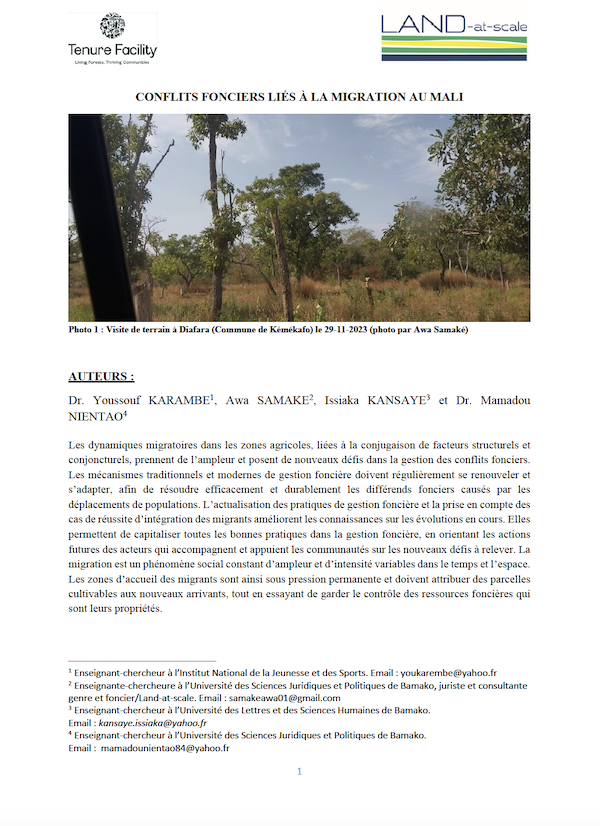Conflits Fonciers Liés à la Migration au Mali
Policy Papers & Briefs
Décembre, 2023
Mali
Les dynamiques migratoires dans les zones agricoles, liées à la conjugaison de facteurs structurels et conjoncturels, prennent de l’ampleur et posent de nouveaux défis dans la gestion des conflits fonciers. Les mécanismes traditionnels et modernes de gestion foncière doivent régulièrement se renouveler et s’adapter, afin de résoudre efficacement et durablement les différends fonciers causés par les déplacements de populations.


